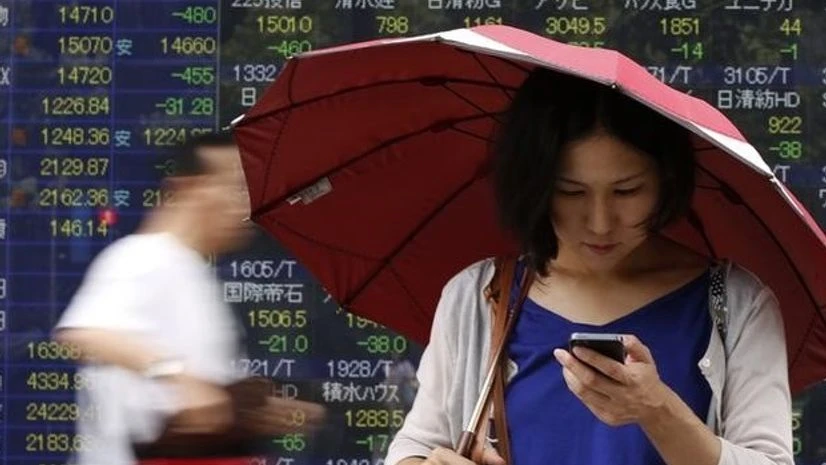Asian shares bounced on Tuesday as doubts the Federal Reserve really would hike interest rates as soon as September restrained the dollar, while investors continued to count on more policy stimulus elsewhere in the world.
MSCI's broadest index of Asia-Pacific shares outside Japan rose 0.5 per cent, recouping around half of Monday's loss. Stocks in South Korea added 0.7 per cent and Australia 0.4 per cent.
Japan's Nikkei went flat as the yen stopped falling following a sharp drop late last week.
A raft of Japanese data, from unemployment to retail sales, mostly beat analysts' forecasts but did nothing to change expectations the Bank of Japan would eventually have to ease further.
Markets are less sure when US policy might change after Fed Chair Janet Yellen on Friday said the case for a rate increase was strengthening, but provided little detail on when it would next move.
Vice Chair Stanley Fischer suggested a hike was possible as soon as September. Fischer is set to appear again later on Tuesday.
More From This Section
Yet while the initial market reaction was to push up the probability of a September hike to 44 per cent, investors quickly had second thoughts and by Tuesday the implied chance was back at 36 per cent.
Dealers also reported talk the August payrolls report on Friday might miss expectations and make it that much harder for policymakers to contemplate a September tightening.
On Wall Street, the Dow ended Monday up 0.58 per cent, while the S&P 500 added 0.52 per cent and the Nasdaq 0.26 per cent.
Financials were the best performer on the S&P 500, with Wells Fargo up 2.2 per cent.
The sector typically rises with talk of higher rates, on the expectation that banks' income could rise as they charge more for loans. However, the correlation is not direct as it requires the yield curve to steepen and, so far, it is not obliging.
Naturally Lower
Indeed, longer-term yields fell further than the short end on Monday, in part because much of the market suspects any Fed tightening would lead to even lower inflation over the long run.
Indeed, longer-term yields fell further than the short end on Monday, in part because much of the market suspects any Fed tightening would lead to even lower inflation over the long run.
Figures out Monday showed the Fed preferred measure of core inflation stuck at 1.6 per cent for a fifth straight month.
The San Francisco Fed underlined the subdued outlook for inflation and rates in a research note.
The "natural" rate of interest - the real rate consistent with full use of economic resources and steady inflation near the Fed's target level - was near zero and would rise to only 1 per cent over the next decade.
"If these projections are accurate, then a monetary policy designed to track the rise in r-star (natural rate) would imply a very gradual normalisation of the federal funds rate," the note said.
The retreat in Treasury yields restrained the dollar, which held at 95.697 against a basket of currencies from a two-week top of 95.834.
The dollar likewise ebbed to 102.11 yen from a peak of 102.39, while the euro was a shade firmer at $1.1176.
In commodity markets, oil steadied after falling by around 1 per cent on Monday. Oversupply remained a major concern with US crude stockpiles forecast to have risen by 1.3 million barrels last week, a Reuters poll showed.
Brent crude futures were up 6 cents at $49.32 a barrel, while US crude added 11 cents to $47.09.

)
